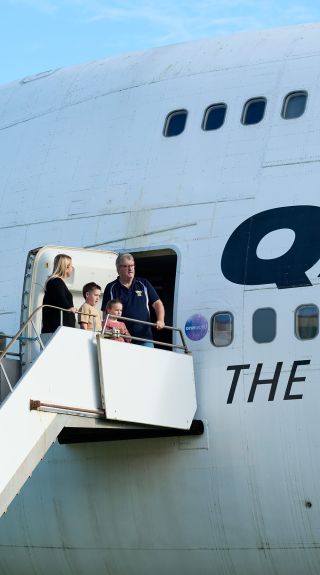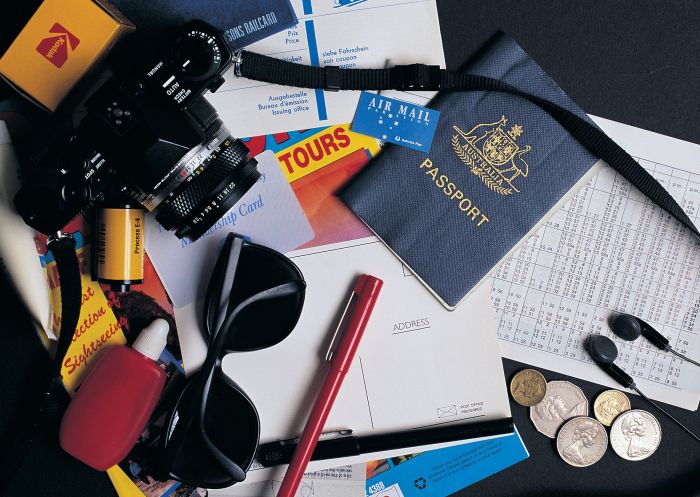

Australian customs and quarantine control
HARS Aviation Museum, Wollongong



Before travelling to Australia, check which items you can and cannot bring into the country. Upon arrival you will be required to complete documentation declaring the items you are bringing with you. If you fail to declare items, you may receive a significant penalty or be prosecuted with a criminal offence.
All arriving passengers must complete an Incoming Passenger Card, and present their passport and completed Incoming Passenger Card to an Australian customs officer on arrival.
Items you must declare on arrival:

Travel items including Australian passport and coins - Credit: Tourism Australia
Declared risk goods will be inspected by a biosecurity officer. There are penalties for not declaring illegal and restricted items and for making false declarations on your Incoming or Outgoing Passenger Card. If you’re in doubt, declare your goods or ask a customs officer for advice.
When arriving in Australia:
For more information visit the Australian Border Force website.
Before travelling to Australia, check which items you can and cannot bring into the country. Upon arrival, you will be required to complete documentation declaring the items you are bringing with you.
Items you must Declare on Arrival:
For more information visit their website www.customs.gov.au.
To contact Australian customs please visit their website www.customs.gov.au.
There are certain food, meat, plant materials, weapons, medications, animals and risk goods that are not allowed to be brought into Australia and Sydney. Declared risk goods will be inspected by a biosecurity officer with penalties for not declaring illegal and restricted items.
Stay connected to Sydney for all the latest news, stories, upcoming events and travel inspiration.
All the insider news, tips and inspiration you need to plan your next trip, delivered straight to your inbox.
Sign UpSydney.com is the official tourism site for Destination NSW.
© Copyright 2026 Destination NSW. All rights reserved